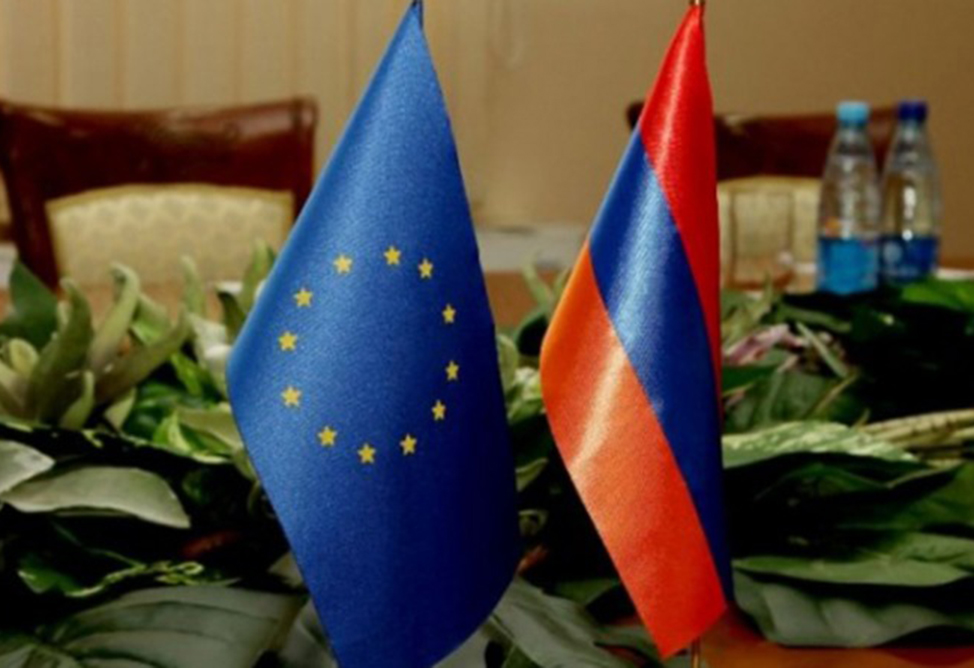Armenian, French FMs discuss preparations for Armenia-Azerbaijan presidential meeting
08.10.2014,
14:46
Armenia’s foreign minister Edward Nalbandyan has discussed with his French counterpart Laurent Fabius preparations for the meeting of the Armenian and Azerbaijani presidents in Paris in late October, the press office of the Armenian foreign ministry reported.

YEREVAN, October 8. /ARKA/. Armenia’s foreign minister Edward Nalbandyan has discussed with his French counterpart Laurent Fabius preparations for the meeting of the Armenian and Azerbaijani presidents in Paris in late October, the press office of the Armenian foreign ministry reported.
The upcoming meeting is initiated by France president François Hollande.
Nalbandyan reaffirmed Armenia’s commitment to continue joint efforts with the OSCE Minsk Group in Karabakh peace process.
Armenia’s foreign minister highly appreciated France’s, as well as the US’ and Russia’s constructive involvement in the peace process and stressed the importance of joint efforts aiming at an exclusively peaceful settlement.
The ministers noted regular mutual visits by the countries’ presidents have contributed to the high-level bilateral relations.
Nalbandyan and Fabius discussed a number of current international and regional problems.
Tripatrite discussions on the Karabakh conflict have become a common practice over the years. Such meetings were usually initiated by the Russian president. The last Armenia-Russia-Azerbaijan presidential meeting held in Sochi on August 10 helped reduce the tense on the Armenia-Azerbaijan contact line.
A similar meeting was held during NATO summit in Newport on September 4, initiated by the US Secretary of State.
The Karabakh conflict started in 1988 when prevailingly Armenian population of Nagorno-Karabakh declared withdrawal from Azerbaijan. On December 10, 1991, a referendum was held in Nagorno-Karabakh where 99.89% voted for independence from Azerbaijan.
Azerbaijan responded by large-scale military operations that led to loss of control not only over Nagorno-Karabakh itself, but also over seven adjoining areas. About 25-30 thousand people were killed and about a million had to leave their homes during the military operations.
A trilateral cease-fire agreement was signed on May 12, 2004, and has been followed since then.
The ongoing Karabakh peace process started in 1992 under auspices of OSCE Minsk Group co-chaired by the USA, Russia and France. –0—
The upcoming meeting is initiated by France president François Hollande.
Nalbandyan reaffirmed Armenia’s commitment to continue joint efforts with the OSCE Minsk Group in Karabakh peace process.
Armenia’s foreign minister highly appreciated France’s, as well as the US’ and Russia’s constructive involvement in the peace process and stressed the importance of joint efforts aiming at an exclusively peaceful settlement.
The ministers noted regular mutual visits by the countries’ presidents have contributed to the high-level bilateral relations.
Nalbandyan and Fabius discussed a number of current international and regional problems.
Tripatrite discussions on the Karabakh conflict have become a common practice over the years. Such meetings were usually initiated by the Russian president. The last Armenia-Russia-Azerbaijan presidential meeting held in Sochi on August 10 helped reduce the tense on the Armenia-Azerbaijan contact line.
A similar meeting was held during NATO summit in Newport on September 4, initiated by the US Secretary of State.
The Karabakh conflict started in 1988 when prevailingly Armenian population of Nagorno-Karabakh declared withdrawal from Azerbaijan. On December 10, 1991, a referendum was held in Nagorno-Karabakh where 99.89% voted for independence from Azerbaijan.
Azerbaijan responded by large-scale military operations that led to loss of control not only over Nagorno-Karabakh itself, but also over seven adjoining areas. About 25-30 thousand people were killed and about a million had to leave their homes during the military operations.
A trilateral cease-fire agreement was signed on May 12, 2004, and has been followed since then.
The ongoing Karabakh peace process started in 1992 under auspices of OSCE Minsk Group co-chaired by the USA, Russia and France. –0—



